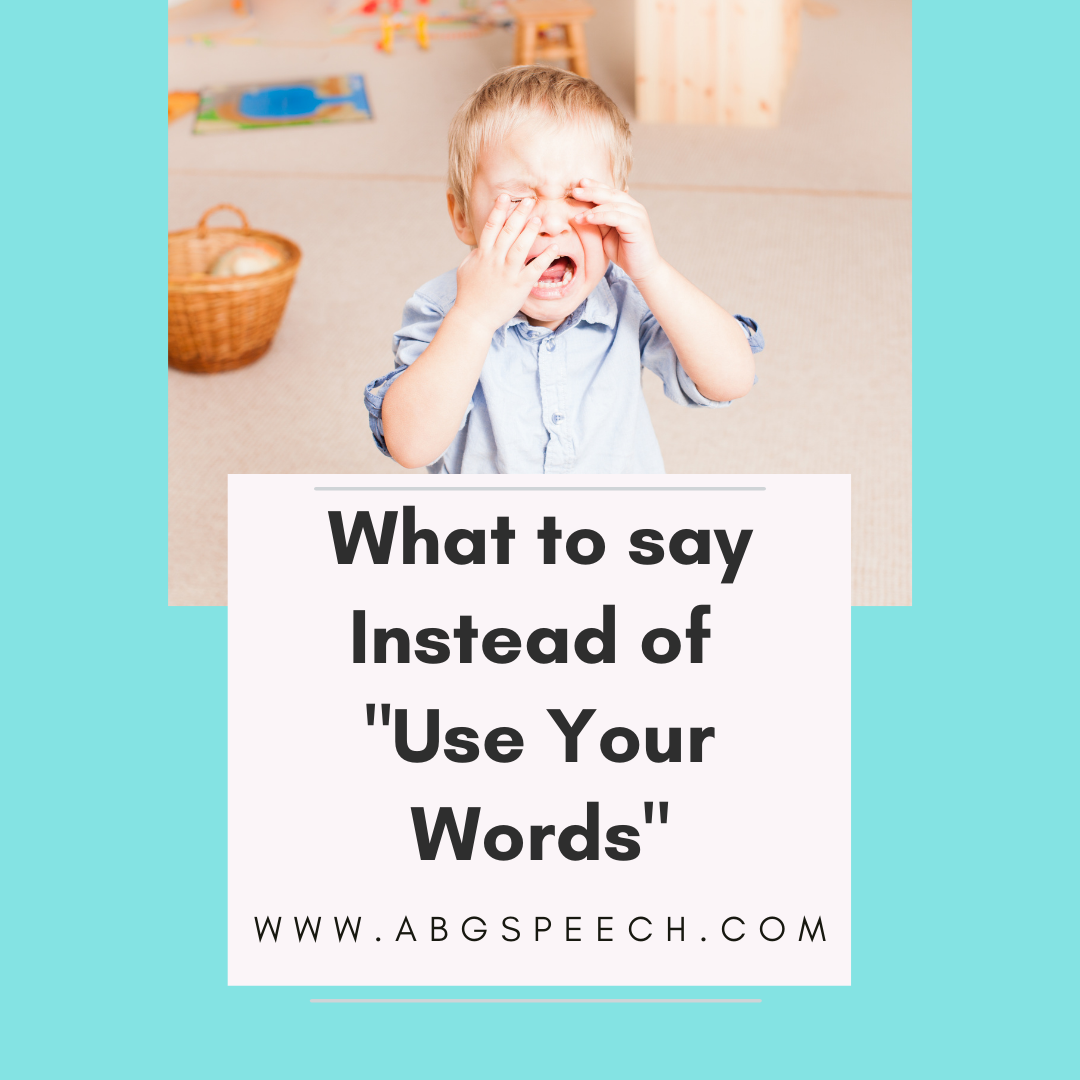Did you know that you can build a strong foundation for speech and language development during daily routines?
𝑾𝒐𝒓𝒅𝒔 are everywhere. No matter what you are doing or where you are there are plenty of opportunities for your child to learn to talk.
What counts as a word? How many words should my toddler say?
Hi, I’m Amanda, a licensed pediatric Speech-Language Pathologist (Speech Therapist). I am passionate about empowering you with the tools to get your child talking. I love working with parents to take the guesswork out of getting your baby, toddler or preschooler talking.
One of the most common questions I get asked by parents is, “How many words is my child expected to say? ” It’s important to know what counts as a word. When children are learning to talk their words are not expected to sound exactly like the adult version.
What counts as a word?
1. Word Approximations- This is common in very young children. A word approximation is when a child says part of a word versus the entire word. For example, “ba” for ball.
2. Animal Sounds “oink”, “moo”, “woof”, “quack”, “meow” (These are easy for children to say and imitate. This is a great place to start if your child is not talking yet.)
3. Sound Effects: beep-beep , vroom (These are perfect sounds to make while playing with cars.)
4. Exclamatory Words: These words easy for children to imitate and are fun to say. Some examples include “wee”, “yay”, “ow”, “uh-oh”.
5. Sign Language
We count it as a word if your toddler uses the word CONSISTENTLY, INDEPENDENTLY and INTENTIONALLY to refer to someone or something. If your baby or toddler says the word once, it would NOT count as a word. It is important to keep these word types in mind when counting the number of words that your child has. You may find that your child says more words once you refer to this list of what counts.
If you found these tips useful be sure to download your FREE Speech Sound Development Guide with first words tips to learn what sounds to expect and how to encourage those first words!
Looking for more tips to help get your toddler talking. Check out my online course, Talking Tips Academy™ that is now available for preorder by clicking HERE.
What to Say Instead of "Use your Words"
Hi, I’m Amanda, a licensed pediatric Speech-Language Pathologist (Speech Therapist). I am passionate about empowering you with the tools to get your child talking. I love working with parents to take the guesswork out of getting your baby, toddler or preschooler talking.
Are you looking for a way to help your child communicate? One of the best ways to help children communicate is to MODEL what to say and HOW to say it.
•
Have you been in a situation where your child was crying and not telling you what’s the matter? Did your child continue to stare at you or cry? Have you used the phrase “use your words”? Please know that we have all used this phrase before. You have not caused any harm by using it.
•
When you use the phrase, “use your words” this implies that your child knows what to say and the exact words to use. Your child may or may not know what to say. They might know what to say but when they are upset, they struggle to formulate a sentence in that moment. Your child may not have these words in their vocabulary yet.
•
TRY THIS:
Let’s take the demands off your child when they struggle to communicate, are upset or are having a tantrum.
We can make this moment easier by GUIDING them and COACHING them through it.
The best way to help children communicate is to MODEL what to say and HOW to say it. When you show your child what to say , this builds their skills for the future.
Again, I want to reiterate, if you have used the phrase “use your words”, you have not caused any harm. Try this tip next time.
•
WHAT TO SAY INSTEAD OF “USE YOUR WORDS”
✅ MODEL the words to use: Use simple language that’s easy to understand.
✅ STATE the exact words to use. (I want juice. I want milk.)
✅ THINK- ALOUD: Talk about how you solve problems so your little one can hear your internal thought process. (The store is out of chocolate milk but we can buy milk and chocolate syrup to make our own.}
✅ Acknowledge their GESTURES: if your child is pointing at something, say the words that go along with the gesture. (If they point at a toy or food, say “You want the ball? Here’s the ball. You want a cookie? Here’s a cookie.”)
✅ Teach FEELING words- talk about different emotions and feelings.(I see that you are mad/upset/frustrated.) When you talk about feeling words/emotions this gives your child the words to use later on so that they can say “I am mad.” “I am sad.” “I am happy.”)
•
Looking for more tips to help get your toddler talking. Checkout my online course, Talking Tips Academy™ that is now available for preorder by clicking HERE.
If you found these tips useful be sure to download your FREE Speech Sound Development Guide with first words tips to learn what sounds to expect and how to encourage more words!









